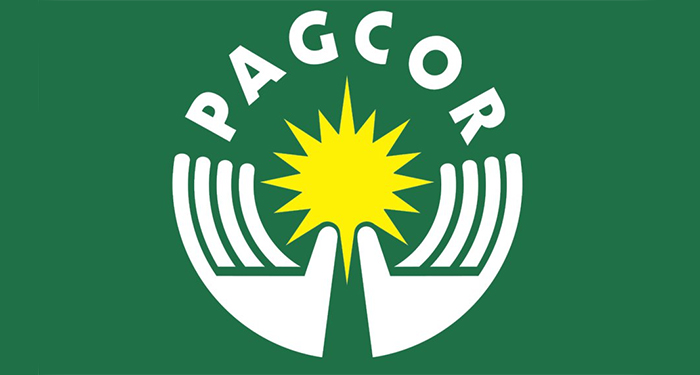cusdiculna1977.netlify.com
Pagcor Online Bingo
- Pagcor Online Bingo Game
- Pagcor Online Bingo Free
- Pagcor Online Games
- Pagcor Online Bingo Login
- Pagcor Online Bingo Games
The gambling regulator in the Philippines, the Philippine Amusement and Gaming Corporation (PAGCOR) urged social platforms to help combat illegal gambling in the country.
- Our Online Bingo Caller is great for hosting your own Bingo games! With a clear screen for the number just called, as well as the matching Bingo Phrase its a firm favorite among our users!
- Play Bingo at GamePoint Create a username for free and play directly with hundreds of others.
- PAGCOR to stop granting licenses to e-Bingo, e-Games. Casino regulator Philippine Amusement and Gaming Corporation (PAGCOR) will temporarily stop issuing licenses for e-Games and e-Bingo stations, following pronouncements of President Rodrigo Duterte that online gambling must be stopped during his term. 'Sa licensing, 'wag muna mag-process ng.
- Online Bingo Laws in the Philippines. According to the Republic Act No. 9487, PAGCOR is also responsible for issuing licenses to online bingo sites in the Philippines, although these cannot be played by Filipino citizens under the Executive Order No.13, and must, therefore, target offshore players.
The Cagayan Freeport area has several online bingo operators licensed under Filipino gambling laws. They certainly compensate for the fact that PACGOR’s online casino does not include real-money bingo games. And luckily, bingo fans always have the option of accessing foreign websites, as many of them accept players from the Philippines.
Citing reports that online activities of unlicensed operators have increased since the beginning of the health crisis induced by the coronavirus, the regulatory body claimed social media such as Facebook are among the platforms where illegal gaming operators promote their offering.
Social Media Promote Illegal Gambling
PAGCOR contacted Facebook and other social media platforms, offering them to collaborate with the regulator and the Philippine authorities to oust fraudulent activities from their platforms. The plea for collaboration comes after previous attempts from the regulator to protect the public and urge them to avoid gambling with illegal operators.
In June, PAGCORissued a warning to the Philippine citizens that persons and groups had been organizing illegal Bingo games using Facebook, noting that patronizing such schemes could easily fall prey to identity theft or credit card fraud.

The regulator also reiterated that participation in illegal gambling schemes classifies as a criminal offense, as it is illegal for any person or organization without a license to directly or indirectly take part in any unauthorized gambling activities, including online, internet or remote gambling.
Pagcor Online Bingo Game
Roderick Consolacion, chief legal counsel of PAGCOR, sent an official letter to Facebook, asking the social media to act immediately against such illegal activities or risk being perceived as aiding and abetting them.
Collaboration with the Police and Financial Institutions
According to PAGCOR, efforts of the Philippine National Police Anti-Cybercrime Group (PNP-ACG) have led to one illegal online bingo operation being shut down and a number of others currently being under surveillance.

In addition to collaboration with the police, PAGCOR outlined it would request assistance from the central bank of the Philippines, Bangko Sentral ng Pilipinas (BSP), and the Anti-Money Laundering Council (AMLC) of the country. The regulator would look for assistance to investigate banks, remittance services and payment solutions that are being used by illegal gambling companies.
“While illegal gambling per se is not among the predicate crimes of money laundering, frauds and swindling are. These are based on the act of taking bets from the public by falsely representing that they have a legitimate business, when in fact, they have no such authority.”
PAGCORIn May, the Philippine gambling regulator restored the offshore gambling industry in the country, looking to help generate funds to go towards government needs in the fight against the coronavirus. Philippine Offshore Gaming Operators (POGOs) were allowed to resume business, having been shut down since March 18, but operations at a reduced capacity, 30% of total staff, were only allowed as PAGCOR stressed on the importance of safety for their employees.
According to the regulator, one of the primary areas of concern is that illegal gambling operations and websites continue to be promoted via social media platforms such as Facebook.
Pagcor Online Bingo Free
As such, Pagcor has called on Facebook and other social media platforms to work with the regulator and other authorities in the Philippines to tackle fraudulent activities.
The plea comes as Pagcor also reiterated its warning for citizens in the country to avoid gambling with unlicensed operators, with reports of illegal operations continuing to rise.
Pagcor said the Philippine National Police Anti-Cybercrime Group (PNP-ACG) had succeeded in shutting down one illegal online bingo operation, but also said that a number of illegal gambling operations are currently under surveillance.
To support its ongoing fight against illegal operators, Pagcor said it will request the assistance of both the Bangko Sentral ng Pilipinas (BSP), the central bank of the Philippines, and the country’s Anti-Money Laundering Council (AMLC).
Working with these organisations, Pagcor will investigate the banks, remittance services and payment solutions it said are being used to fund illegal operations.
Pagcor Online Games
“While illegal gambling per se is not among the predicate crimes of money laundering, frauds and swindling are,” Pagcor said. “These are based on the act of taking bets from the public by falsely representing that they have a legitimate business, when in fact, they have no such authority.”
Pagcor Online Bingo Login
Last month, Pagcor reported heavy losses for the first half of 2020, primarily due to the Covid-19 pandemic pushing back the reopening of integrated resorts in the capital Manila.
Pagcor Online Bingo Games
Total income from gaming operations for the six months to 30 June amounted to PHP18.44bn (£297.5m/€325.8m/$380.4m), down 49.6%, from PHP36.6bn in H1 of 2019.